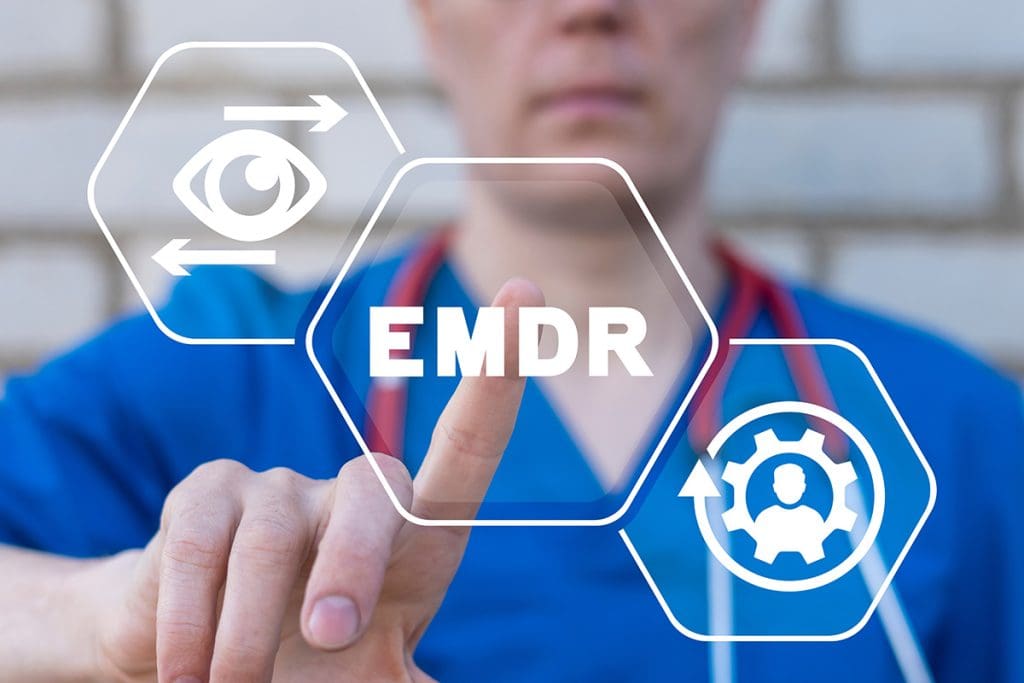
What is EMDR Therapy?
When it comes to substance abuse treatment, the method is usually less important than the results. Many holistic treatments such as equine therapy or art therapy might not seem like a suitable way to rid someone of their addiction on the surface, but the results prove otherwise.
Since every addict is different, there is no one blanket treatment that works for everyone, and addictions specialists are always looking for new ways to break through and help patients find peace in a sober life. One treatment that has emerged as a potentially effective treatment for drug and alcohol addiction is called EMDR Therapy.
HOW IT CAME TO BE
EMDR Therapy was created in 1987 by Dr. Francine Shapiro. The discovery was made by chance, as Dr. Shapiro noticed how under certain conditions, eye movements reduced the intensity of disturbing thoughts. After studying this phenomenon scientifically, she published a report in the Journal of Traumatic Stress in 1989, detailing how EMDR helped treat victims of traumatic stress.
What Can I Expect from the Blackberry Center’s Inpatient Rehab Program?
After being admitted into The Blackberry Center, you will be evaluated by addiction specialists who will then create a customized detox plan based on your specific addiction(s), their severity, and your unique needs. The side effects of withdrawal from a prescription drug dependency can range from uncomfortable to dangerous, and it is important that your detoxification take place under the close supervision of our specialists. During your five-to-seven-day detoxification period, you will be provided all necessary support to ensure that the transition to recovery is smooth. The prescription drug detox program includes close medical supervision to minimize the side effects of withdrawal and expert counseling to help you through the mental challenges. After your detox is complete, you will undergo a recovery evaluation and may choose to pursue full inpatient rehabilitation.
Drug Detoxification Process
The entire drug detoxification process can be summarized in 3 steps, which are as follows:
Evaluation:
Depending on your addiction(s) and unique needs assessed during your evaluation, an individualized detox program will be developed to effectively eliminate your physical dependency to prescription drugs.
Stabilization:
Prescription drug dependency can be particularly challenging due to the effects of withdrawal in addition to the underlying pain or condition your prescription was initially intended to treat. Our prescription drug addiction specialists will work with you to ensure an alternative means to treating your pain or condition is found, and that your are in the most comfortable environment possible during the detox process. At The Blackberry Center, client safety is our number one priority. To minimize the side effects of withdrawal the entire detox process will be performed carefully under close medical supervision.
Transition to Treatment:
While the physical effects of your drug dependency will be alleviated during detoxification, successful recovery requires dedication to rehabilitation. Our addiction specialists will provide support for you throughout the entire rehabilitation process.
A Lasting Recovery Starts Here
Once you arrive at The Blackberry Center you will undergo a personalized assessment of your drug and alcohol habits and a comprehensive physical evaluation from a staff addiction specialist. Once these steps have been taken, you and your specialist will discuss the best course of treatment for you. Your treatment program will include an individualized detox, dietary planning, therapy sessions, and close medical supervision. Please contact us today to get started.
